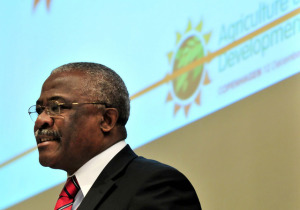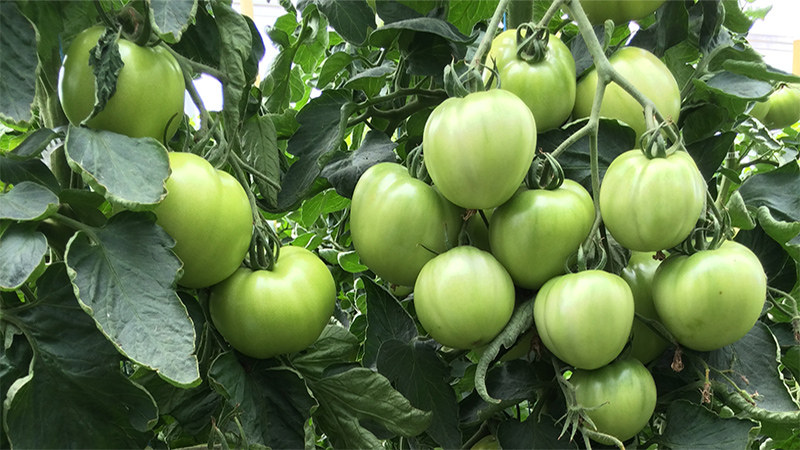Ebola Affected Countries Could Face ‘Wave of Food Crises’ – IFAD

Kanayo Nwanze, president of the U.N. International Fund for Agricultural Development
The United Nations International Fund for Agricultural Development (IFAD) is calling for a “rapid collective response” to the Ebola crisis in West Africa.
In the absence of a concerted international response, the affected countries could face a “wave of food crises in the near future,” IFAD said.
In a keynote speech delivered at the symposium held in connection with this year’s World Food Prize in Des Moines, Iowa, IFAD President Kanayo F. Nwanze noted that the Ebola epidemic has already “seriously disrupted” agricultural production and trade in Guinea, Liberia and Sierra Leone, leading to higher food prices. Up to 40% of farms in Sierra Leone have been abandoned as farmers stay home in fear of infection, Nwanze added.
Nwanze joined the Ministers of Agriculture from Liberia and Sierra Leone in a press conference at the symposium. He and the ministers underscored the importance of dealing swiftly with the emergency in West Africa, as well as investing in long-term agricultural development to build resilience in rural areas.
The events are unfolding in the backdrop of the World Food Prize, where this year, plant scientist Sanjaya Rajaram, born in India and a citizen of Mexico, received the honor for scientific research that has led to an increase in world wheat production.
The prize was initiated in 1986 by Norman E. Borlaug, a renowned U.S. research scientist and Nobel Laureate. During his Nobel Peace Prize lecture in 1970, Bourlaug said: “It is a sad fact that on this earth at this late date there are still two worlds, “the privileged world” and “the forgotten world.”
“Part of IFAD’s message in Des Moines is that Bourlaug’s statement remains all too true – that most of the world’s poor and hungry people live in the often forgotten rural areas of developing countries,” the agency said. “Small-scale farmers and other rural producers provide most of the food in these areas, but farming families are, themselves, highly vulnerable to food insecurity caused by shocks such as the Ebola epidemic and climate change.”
IFAD emphasized that the international community can act to break the cycle of crisis and food insecurity. IFAD believes it is still possible to meet the challenge of feeding the world’s growing population, including its rapidly expanding cities. “But this will only be possible through investments that are inclusive and responsive to the needs of rural people, giving them the tools to lift themselves out of poverty and transform their communities.”






